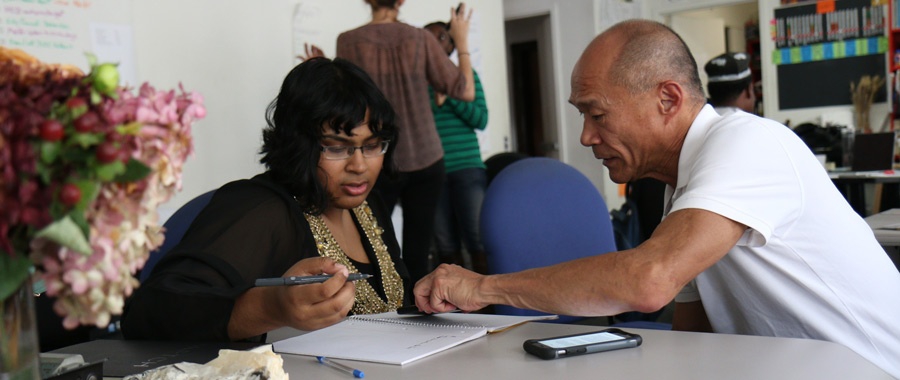The views expressed in our content reflect individual perspectives and do not represent the authoritative views of the Baha'i Faith.
Recently I’ve been doing some volunteer work as the facilitator of a study class convened for adult learners.
I was happy to agree to do this as an act of service, without expectations about what I might personally gain from it.
As it has turned out, probably no one has learned more than me. It has been exactly as written by 19th-century French essayist Joseph Joubert: “To teach is to learn twice.”
My many years of work in adult education and training have proven this over and over again. The learning is not just what I could have read in a book or found on a website. Rather, it is how ideas can be interpreted, how life experiences relate to larger ideas, and ultimately how the information and facts can be integrated into action.
Within this study class I am serving as a facilitator and not a teacher. Nevertheless, this educational advice from the Baha’i writings fits the situation well:
The teacher should not see in himself any superiority; he should speak with the utmost kindliness, lowliness and humility, for such speech exerteth influence and educateth the souls. – Abdu’l-Baha, Selections from the Writings of Abdu’l-Baha, p. 30.
As I see it, my role is to encourage, not teach; to create opportunities, not enforce results; to serve, not preside. Overall I find within my current experience at least three key themes: humility, respect, and detachment.
With humility being an important character trait to develop, we must be sincere about it, not just adopt false modesty. I have found that joining others in learning is an ideal situation for developing humility. I am always enriched and humbled by the wisdom and insights of others, far beyond the mere recitation of facts.
Closely related to humility is respect for others. Obviously people differ in our capacities and abilities—yet we are all capable of learning, which also means that we can help others to learn. The Baha’i writings link learning with striving and sincerity, and this is within everyone’s reach as well. As a facilitator of learning, one of my responsibilities is to find ways to include everyone. We’ve probably all been in situations where a few people dominate the discussions. Yet, if I respect everyone then I will seek ways to include them. This may mean, for example, scheduling periods of silent reflection, after which the more reticent participants might feel ready to speak.
Detachment, another requisite for personal growth, helps in learning, too. A phrase I’ve been seeing lately is “posture of learning,” which to me means creating an open-minded atmosphere rather than searching for formulaic answers. This can apply to a study situation or just about anywhere that people come together to consult. The outcome might be a problem solved, a perplexing situation being understood, hurt feelings being soothed, or plans being made. The important thing is to ensure a safe place to learn, where mistakes are allowed and innovation is encouraged.
As I prepare for each class session, these principles guide me. I find myself concentrating less on the subject matter and more on questions that the group might discuss. For every page of notes I take with me, I expect to come home with even more that I write while we are together.
As I anticipate each subsequent session, I am eager to teach, so that I can learn twice.
















Comments
Sign in or create an account
Continue with Googleor